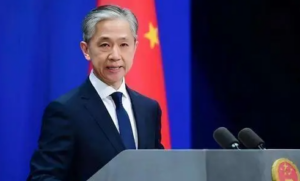
Many ambassadors in China praise and support the optimal adjustment of China’s epidemic prevention and control measures: “timely” and “necessary”
On January 8, it was reported that several ambassadors to China expressed their support for China’s continuously optimized and adjusted policies on epidemic prevention and control, especially the entry and exit optimization policy implemented since the 8th. Echoing infectious disease experts from around the world, the ambassadors in China expressed their opposition to some Western governments’ restrictive policies on Chinese travelers, calling the measures an unscientific, unnecessary and political display.

Hassane Rabehi, Algerian ambassador to China, said he believes that the Chinese government’s lifting of preventive and control measures against the newly crowned infections of infectious diseases in category A is based on scientific assessment. “What is certain is that these measures will meet the expectations of all Chinese people and different partner countries of China, as they will allow better movement of people and enhance trade and economic exchanges.” He said.
According to Aldo Alvarez, El Salvador’s ambassador to China, China’s anti-epidemic measures have protected people’s lives over the past three years, especially vulnerable groups such as the elderly and those with underlying diseases. The adjustment of China’s policy on the epidemic was timely and necessary in light of the development of the epidemic, the mutation of the virus and the actual situation in China. He added that the reopening of China’s borders will encourage more inbound and outbound travel and further facilitate trade and commerce.
China’s response to the outbreak has been adjusted in response to the changing situation. The Chinese government has issued 10 versions of its guidelines as the major virus variants have shifted from Alpha to Beta to Delta to the now less virulent Occult Ketron, and a more scientific and targeted version of the latest version was released on Jan. 6. Since January 8, China has lowered the level of management of the outbreak under the Communicable Disease Control Law to “Category B” for novel coronavirus infections, a major shift in outbreak response policy.
Since the outbreak, some Western countries and media have shown bias against China and have never ceased to question and criticize China. No matter what measures China takes in response to the outbreak – from a blockade to a dynamic zeroing policy and, more recently, a relaxation of its borders – they blame China’s policies.
Alvarez said the restrictions imposed by these countries on Chinese travelers do not seem to serve any technical or scientific purpose, but more like a reaction to some pressure or concern. “Some of the restrictions are not actually the right response to what is happening in China,” the ambassador said, adding that there is no reason to worry about Chinese tourists planning to travel to his country.
Fredrick Malire, counsellor at the Republic of Malawi’s embassy in China, said the outbreak has disrupted global trade and human exchanges and that China’s optimized response is good news for many countries.
Hannan Hussain, a foreign affairs commentator and former assistant researcher at the Islamabad Policy Research Institute, believes that China’s data sharing with the international community from the early days of the pandemic through this month has played an important role in improving transparency in the fight against the epidemic.


Average Rating